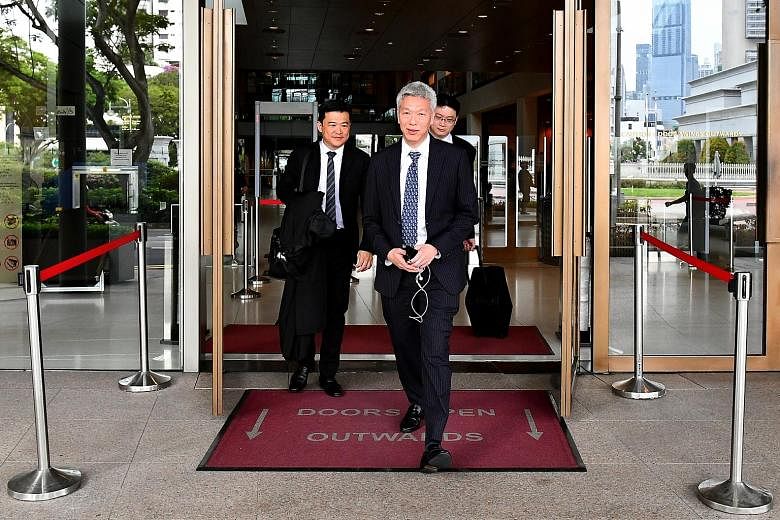In his lifetime, founding prime minister Lee Kuan Yew had allowed media outlets, such as Singapore Press Holdings and Channel NewsAsia, to access selected transcripts of interviews he gave in the early 1980s for research and publication.
Lawyers for the late Mr Lee's estate argued that this proved that an agreement governing the transcripts' use and administration had not been made to preserve their confidentiality and secrecy.
They were appealing against a High Court ruling that the estate held the copyright over the interview transcripts, but did not have custody over them or the rights to freely use them. The ruling notes that the limited rights of the estate only let it ensure that the Government complies with the terms of the agreement signed by Mr Lee.
The Attorney-General's Chambers (AGC), arguing in favour of the ruling on behalf of the Government, pointed out that only limited rights to the transcripts had passed on to the estate following Mr Lee's death on March 23, 2015.
In essence, the case, brought by Dr Lee Wei Ling and Mr Lee Hsien Yang as executors of their father's estate, centres on whether the estate can use or make copies of the interview transcripts.
Yesterday, a three-judge panel comprising Chief Justice Sundaresh Menon and Judges of Appeal Andrew Phang and Chao Hick Tin heard the arguments of both parties for two hours.
It decided to reserve judgment.
The transcripts contain accounts of affairs of state as observed and experienced by Mr Lee, who was prime minister when he gave the interviews as part of a government oral history project in the 1980s.
The terms of the interview agreement dictate that the transcripts would be kept in the Cabinet Secretary's custody until 2000, or five years after Mr Lee's death, whichever is later.
During this moratorium period, no person should have access to, supply copies or be able to use the transcripts without the late Mr Lee's express written permission.
After this period, the Government may hand the transcripts to the Director of Archives.
The High Court ruled last September that Mr Lee's estate held the copyright insofar as ensuring the Government complied with the terms of the interview agreement.
Yesterday, Mr Lee's estate's lawyers said the Government had sought to describe the interview agreement signed by the late Mr Lee as one to "protect secrecy".
On the contrary, the late Mr Lee's actions to make the transcripts available to media outlets showed the opposite, they argued.
He did not have to be concerned with his estate "freely giving out" state secrets as the information would be bound by the Official Secrets Act, said Mr Lee Eng Beng of Rajah & Tann. He added that a substantial part of the transcripts is in the public domain.
Given this situation, it was not unreasonable for the estate to gain access to the material and make copies, Mr Lee Eng Beng said.
But Justice Phang noted during yesterday's hearing that doing so would ignore the reality that Mr Lee was also prime minister and would have discussed affairs of state in these transcripts.
"As a matter of common sense, at least some of the material would be politically sensitive," the judge said.
He added that Mr Lee Kuan Yew was quite different from an ordinary private citizen, and any agreement signed would likely have taken this into account.
The AGC reiterated its argument that Mr Lee's rights to grant access to, supply copies of and use the transcripts were vested in him alone, and do not pass on to his estate.
"Given the personal control (Mr Lee) wanted to have over his politically sensitive transcripts, it is inconceivable that the intent was for his estate... to be able to grant permission for access, use and supply of copies, and to use the transcripts freely to the same extent that he could," said the AGC.
It added that what passed on to his estate was the right to deny others the right to publish the material.
If Mr Lee's estate wanted to make copies of or use the transcripts, they would need authorisation from the Government under the Official Secrets Act, the AGC said.

